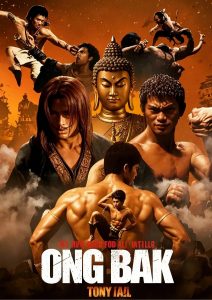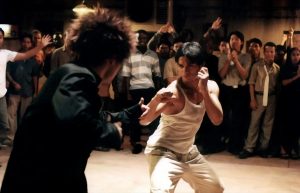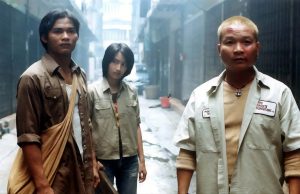“Ong-Bak: The Thai Warrior” (2003), directed by Prachya Pinkaew, stars Tony Jaa and is renowned for its high-octane martial arts action. The film follows Ting (Jaa), a man from a rural village, who embarks on a journey to retrieve the stolen head of a sacred Buddha statue, Ong-Bak. His quest leads him to Bangkok, where he becomes entangled in underground Muay Thai fighting and battles various enemies to recover the statue’s head.

Tony Jaa’s performance is the centerpiece of the film. He performs all his own stunts, showcasing his mastery of Muay Thai with brutal and precise techniques. The fight choreography emphasizes raw physicality, and the film features extended hand-to-hand combat, daring rooftop chases, and elaborate stunts that highlight the power and agility of Muay Thai.

The movie helped introduce Muay Thai to a global audience, setting it apart from other martial arts films with its authentic and visceral approach. Critics and audiences alike praised Jaa’s dedication to performing dangerous stunts without wires or special effects. His work in Ong-Bak solidified him as an international martial arts star, and the film became a cult classic.

“Ong-Bak: The Thai Warrior” also contributed to a new wave of martial arts films that favored practical, real stunts over CGI. The film’s success led to two sequels, Ong-Bak 2 (2008) and Ong-Bak 3 (2010), which delved into historical and mythical themes rather than focusing on the modern-day setting of the original.
For fans of martial arts cinema, “Ong-Bak” remains a must-watch, known for its raw, high-impact action and for showcasing Tony Jaa’s extraordinary skills and dedication to the craft.
